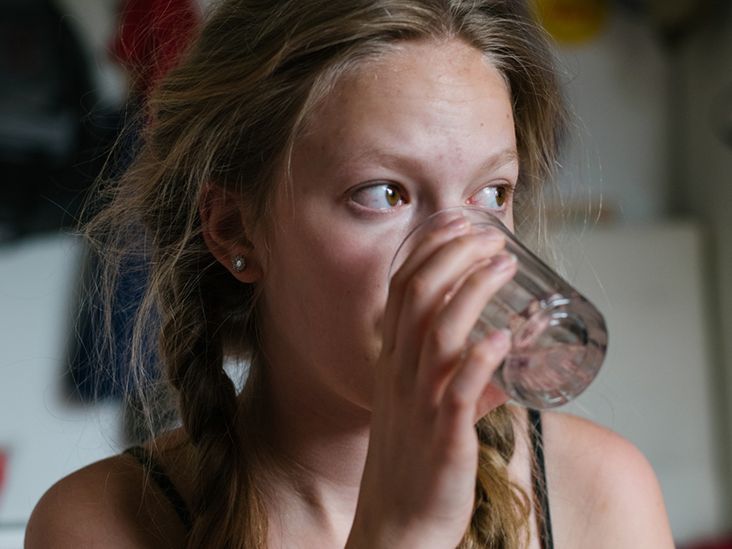
Recognizing Severe Dehydration: Signs and Response
Severe dehydration is a critical medical condition that requires immediate attention. Understanding how to identify the advanced stages of dehydration and knowing the appropriate steps to take can be lifesaving.
In cases of severe dehydration, intravenous fluids may be necessary to prevent organ damage and other serious health complications. Certain populations, including children, the elderly, and pregnant women, are particularly vulnerable to the effects of severe dehydration. Let’s explore the details below.
What is Dehydration?
Dehydration occurs when the body loses more fluids than it consumes, impairing organ function and essential bodily processes like circulation and respiration. Mild dehydration can typically be remedied by increasing fluid intake, particularly through water or electrolyte-rich beverages.
Causes of Severe Dehydration
- Heat: Engaging in physical activities in high temperatures or prolonged exposure to heat can result in excessive sweating and fluid loss.
- Illness: Conditions such as diarrhea or vomiting can lead to rapid fluid loss. If fluids cannot be kept down, mild dehydration can quickly escalate to severe levels.
- Inadequate Fluid Intake: Not drinking sufficient fluids regularly can contribute to dehydration over time.
- Medications: Certain medications, especially diuretics, can increase fluid loss from the body.
Failure to recognize early signs of dehydration and to act on them can result in progressing from mild to severe dehydration.
Symptoms and Consequences of Severe Dehydration
Common symptoms indicative of severe dehydration include:
- Intense Thirst: Contrary to popular belief, thirst is often a late indicator of dehydration.
- Decreased Urination: Reduced frequency and darker urine color are signs that the body is not retaining enough fluids.
- No Urination: If no urine is produced, immediate medical attention is necessary.
- Lack of Sweating: Inadequate fluid levels can lead to overheating and heat-related illnesses.
- Dizziness and Headaches: These symptoms can escalate, affecting concentration and communication abilities.
- Poor Skin Turgor: Skin that does not quickly return to its original position after being pinched indicates a potential deficiency in hydration.
Severe dehydration can lead to critical health consequences such as brain damage and even death, emphasizing the need for vigilance, especially among the elderly who may not recognize their thirst cues.
Assessing Dehydration via Skin Turgor
To gauge your hydration status, pinch the skin on your arm. It should spring back to normal almost immediately. If it remains pinched or “tents,” this may be a sign of severe dehydration.
Recognizing Severe Dehydration in Children
For very young children, severe dehydration might be indicated by:
- No tears while crying
- Noticeable lethargy
- Dry diapers over extended periods
- Cold and clammy limbs
Prompt treatment is crucial, as children can experience rapid health consequences from severe dehydration.
Signs of Dehydration During Pregnancy
Pregnant individuals may experience the following symptoms of severe dehydration:
- Extreme thirst
- Sunken eyes
- Rapid heart rate
- Low blood pressure
- Dry mouth
- Poor skin turgor
- Possible early labor
Additionally, dehydration during pregnancy can trigger false labor contractions known as Braxton-Hicks contractions.
Managing Severe Dehydration
Rehydration requires more than just drinking water; in emergencies, intravenous (IV) fluids are necessary. These fluids typically consist of saline solutions, providing essential electrolytes. Monitoring of blood pressure and heart rate will likely occur in a medical setting to ensure recovery.
For Children
A diluted sports drink (mixed at a 1:1 ratio with water) can provide hydration for children, especially if given in small amounts using a syringe if swallowing is difficult.
For Pregnant Individuals
Hydration can also be achieved through water or electrolyte drinks, with the suggestion to drink when feeling better during nausea.
Best Beverages for Hydration
Hydrating Drinks
Alongside water, beverages like broths, milk, and natural fruit juices are beneficial for rehydration.
Avoid These Drinks
Be wary of beverages that exacerbate dehydration:
- Sugary Soft Drinks: Sodas can worsen dehydration and may lead to kidney-related issues.
- Alcoholic Beverages: Alcohol can dehydrate the body further, negating hydration efforts.
- Caffeinated Beverages: Drinks such as coffee and energy drinks act as diuretics, increasing fluid loss.
Conclusion
Severe dehydration poses a significant health risk, potentially leading to organ damage and other serious conditions. Staying attentive to hydration cues and drinking fluids consistently throughout the day can significantly reduce the risk of dehydration. Individual fluid needs may vary, and it’s vital to consult with healthcare professionals if unsure. A simple check of urine color can also provide insight into your hydration status, with clear urine indicating adequate hydration.
Reading How to Recognize Severe Dehydration and What to Do
